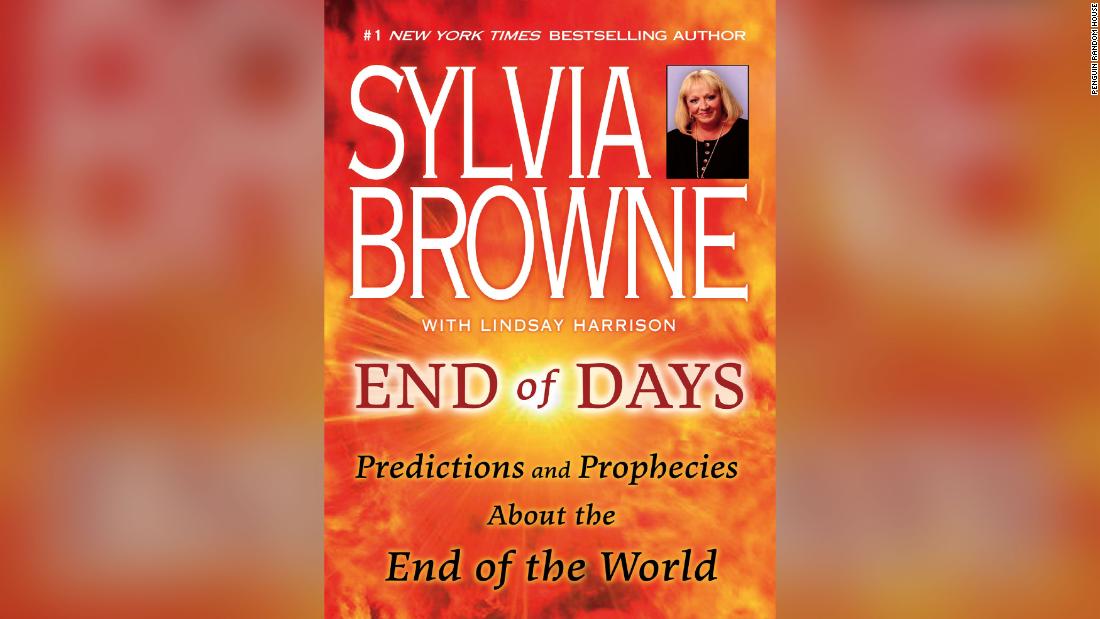By John Blake | CNN
In the summer of 2008, an elderly psychic who claimed she started receiving premonitions at age 5 published a book that contained an ominous prediction.”In around 2020, a severe pneumonia-like illness will spread throughout the globe, attacking the lungs and the bronchial tubes and resisting all known treatments,” it said. “Almost more baffling than the illness itself will be the fact that it will suddenly vanish as quickly as it arrived, attack again ten years later, and then disappear completely.”The prediction faded from public memory and the book’s author, Sylvia Browne, died in 2013. But the coronavirus pandemic has brought new attention to Browne’s book, “End of Days: Predictions and Prophecies About the End of the World.” It’s shot up to No. 2 on Amazon’s nonfiction chart, and physical copies are now selling for hundreds of dollars.

Government and public health officials have issued all sorts of guidelines to help people protect themselves against the spread of Covid-19. But there’s another contagion that experts seem helpless to stop: The plague of prophets warning that the coronavirus is a sign we’re at the “end of days.”There is something about pandemics that cause panicked people to empty their minds along with supermarket shelves. Countless doomsday warnings like Browne’s prediction are spreading online, blending coronavirus fears with everything from political paranoia about a “#oneworld gov controlled by the UN” to Australian wildfires and swarms of locusts in Africa.close dialog

Receive Fareed Zakaria’s Global Analysisincluding insights and must-reads of world newsActivate Fareed’s BriefingBy subscribing you agree to ourprivacy policy.
What drives these doomsday ‘prophets’
Many include wildly inaccurate readings of the Book of Revelation. Often these pandemic prophets end their predictions with sign-offs such as “IF YOU DON’T HAVE A BIBLE, BUY ONE!”
Maybe it’s no wonder some people are stocking up on guns and ammo.But some who study religion and prophecies for a living say it’s time for these social media prophets and psychics to take a self-enforced quarantine. Doomsayers are harming peoples’ spiritual and psychological health, they say.They’re also claiming knowledge that even the most revered figures in religion didn’t dare assume. Whenever Ulrich Lehner, a Catholic theologian at the University of Notre Dame in Indiana, comes across a social media preacher warning that Covid-19 means the end of the world is near, he’s tempted to tweet back this response: “Matthew 24:36.”
Read more >> http://ow.ly/7woZ50yTF6q







